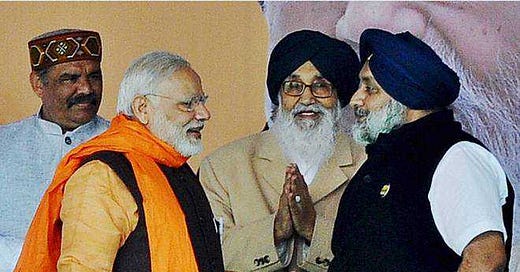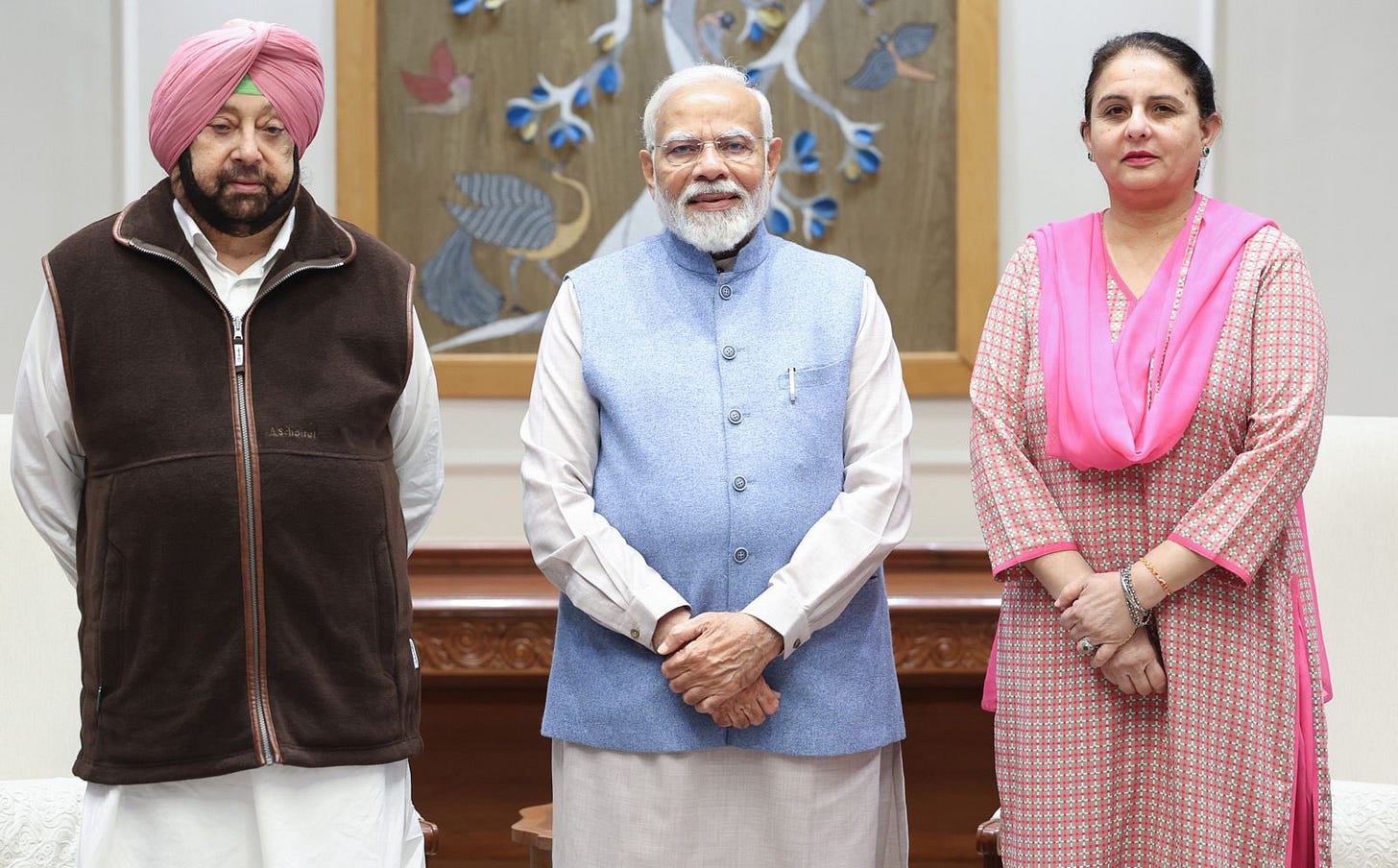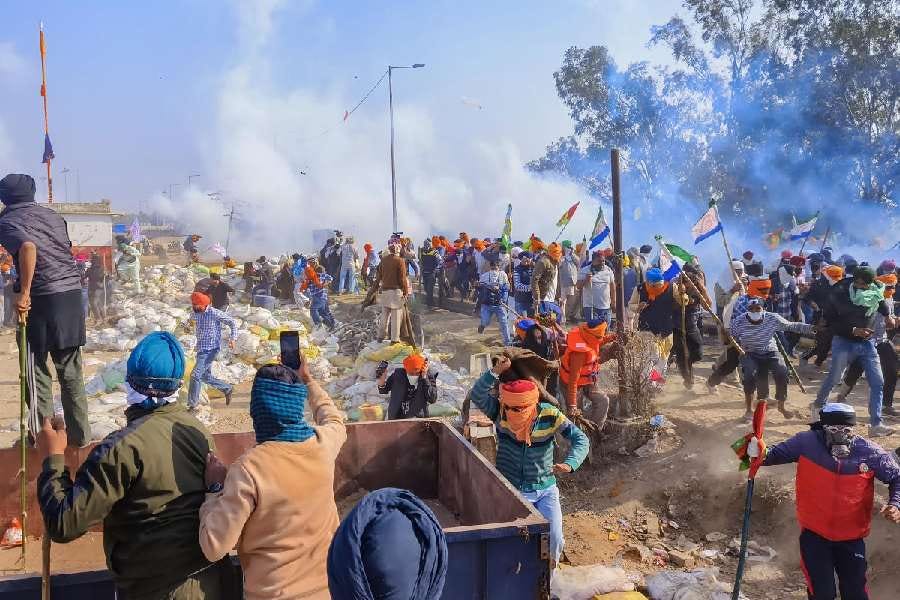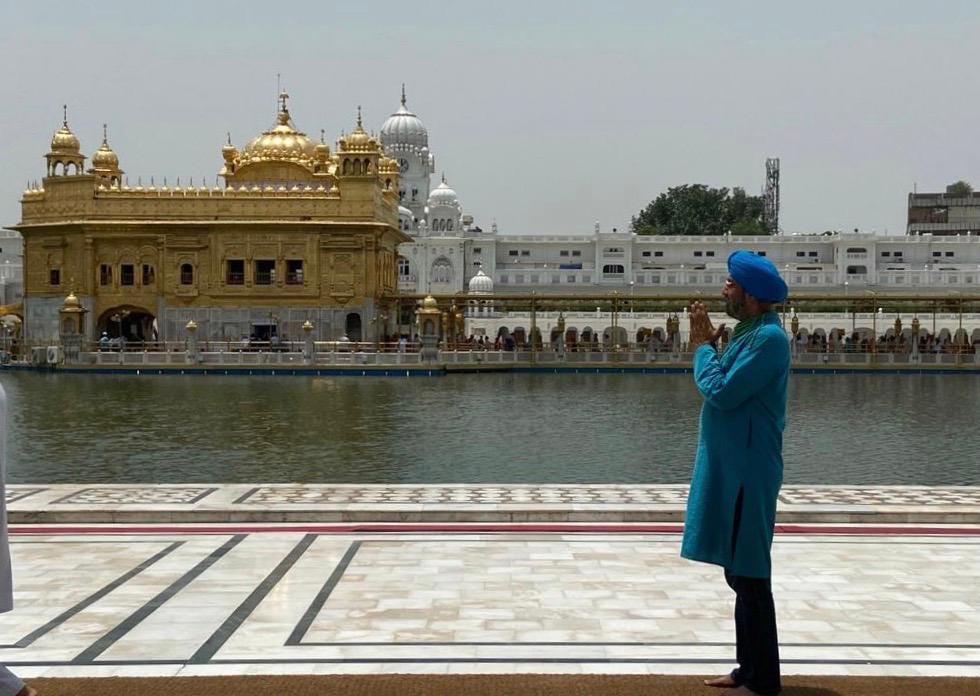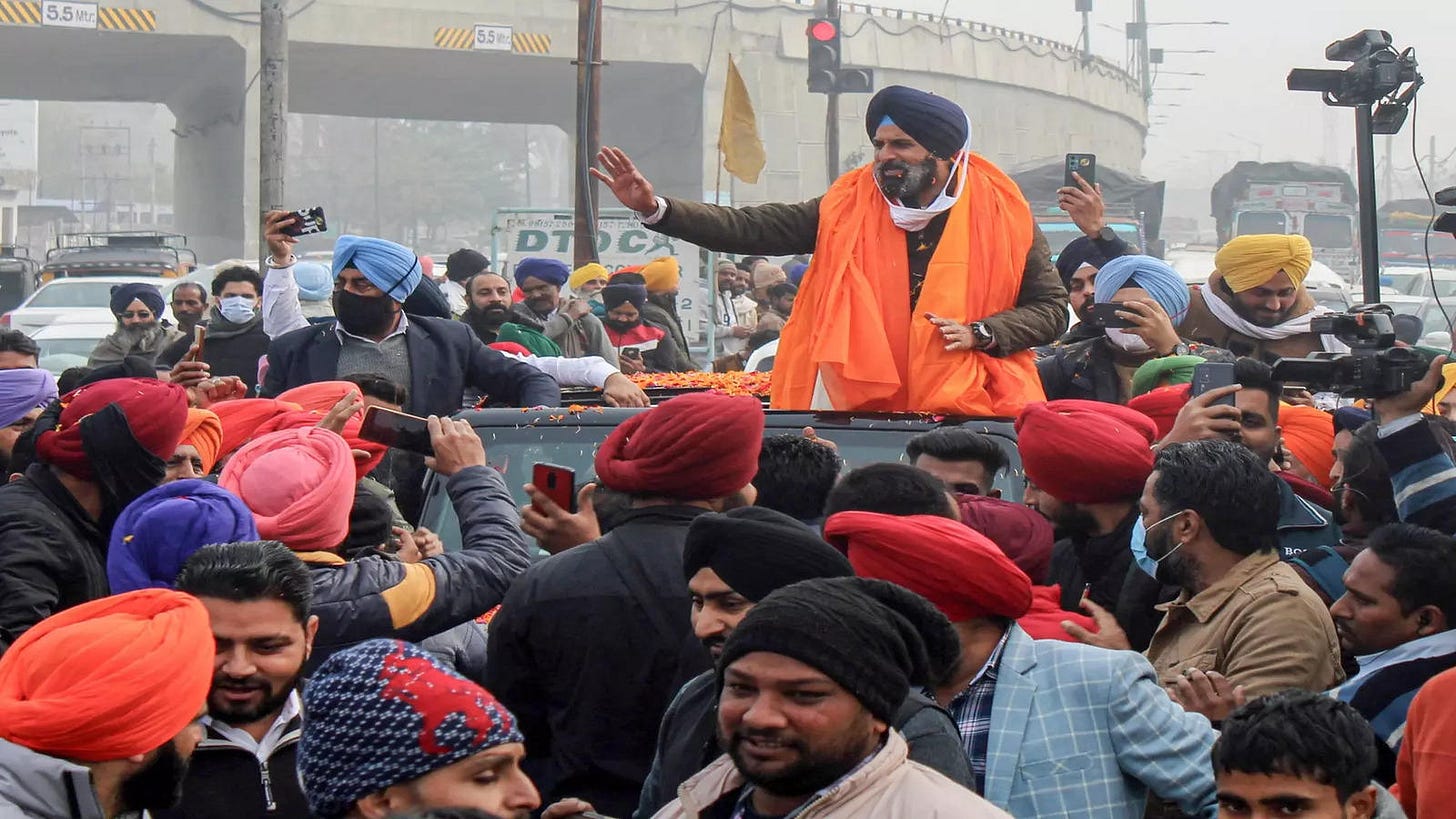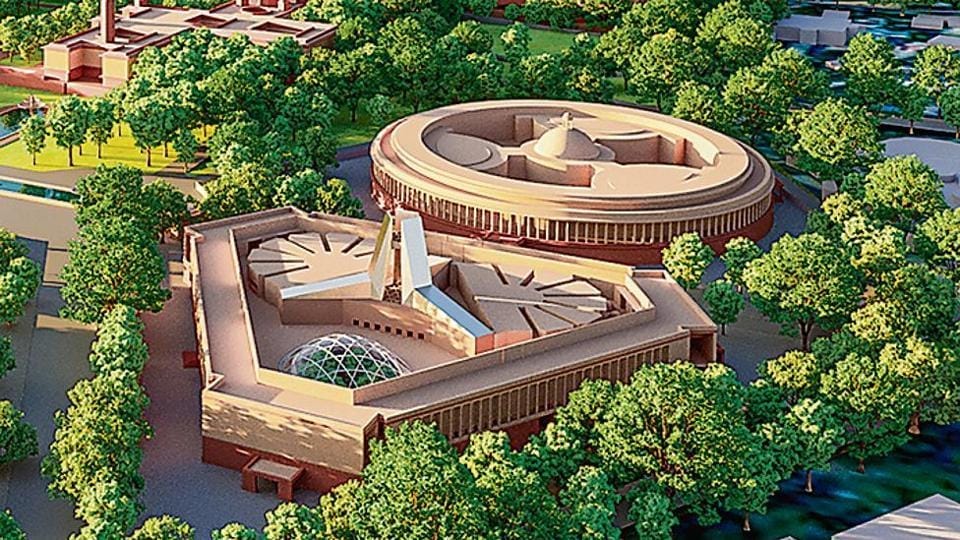Akali Dal-BJP Re-marriage in Punjab: "Will they, Won’t they?"
Dissecting the probability and pitfalls of an alliance that was once an emblem of Hindu-Sikh Unity and Pro-Farmer Polices in Punjab
Introduction to Chandigarh's Social Scene
The "City Beautiful," Chandigarh, boasts a compact yet vibrant elite social circle. I find myself to be congenial, albeit not overly gregarious, especially regarding the frequent social gatherings and obligatory marriage-related festivities.
Recently, I found myself in an unusual situation, attending two notable events back-to-back. A Saturday dinner in the honour of Tony Abbott, the former Australian Prime Minister—a subject I've detailed separately. The preceding Friday saw me at an exclusive celebration for Sardar Satnam Singh Sandhu, the newly “nominated” Rajya Sabha Member and Chancellor of Chandigarh University, a private university in Mohali, Punjab. This event, set in the prestigious Sector 8 residence, was hosted by a business colleague of his and attended by prominent figures from both the Shiromani Akali Dal and the BJP in Punjab, and few guests from the Congress Party.
Political Buzz at the Gathering
At every turn of the conversation within diverse groups, the recurring theme was the potential re-alliance between the Shiromani Akali Dal (SAD) and the Bharatiya Janata Party (BJP). Although I occasionally shared my views, my primary intent was to absorb and understand the perspectives shared by members of SAD, BJP, and even the Congress Party. Given the absence of any formal confidentiality constraints, I am at liberty to distil the essence of these discussions without disclosing any identities.
Noteworthy is the ongoing back-channel dialogue between SAD and BJP, active for several months. The formal cessation of SAD's alliance with the Bahujan Samaj Party (BSP) has fuelled widespread speculation of an imminent reunion with the BJP. Rumours suggest that the blueprint for this alliance had nearly reached completion, with the broad terms already laid out, before it ran into troubled waters.
Navigating Electoral Dynamics
The discussions around the SAD-BJP alliance have revealed a keen focus on seat distribution, with propositions of an 8-5 or 7-6 split, positioning SAD as the senior partner. The BJP is set to contest from its traditional stronghold constituencies of Amritsar, Gurdaspur, and Hoshiarpur (SC), with Ludhiana and possibly one or two more seats under consideration. The Patiala seat emerges as a contentious point, entangled in the aspirations of Captain Amarinder Singh for his daughter Jai Inder Kaur, amidst competing claims from his wife, Maharani Preneet Kaur, who argues for her candidacy based on her experience over her daughter's relative inexperience. A recent meeting between Captain Amarinder Singh and his daughter with the Prime Minister highlighted the familial push for Jai Inder Kaur's candidacy, though no conclusive decision has been made.
The renegotiation of the alliance also touches upon the future Punjab Vidhan Sabha elections in 2027, with SAD seeking to secure seat allocations early on. However, the BJP's stance remains that seat distribution will depend on the parties' respective performance in the upcoming Lok Sabha elections, a perspective that has reportedly left Sukhbir Badal seeking firmer assurances regarding the chief ministerial position, should the alliance secure a majority.
Additionally, the potential merger of the Sanyukta Akali Dal led by Sardar Sukhdev Singh Dhindsa with Sukhbir Badal's SAD, and the candidacy of Parminder Dhindsa from Sangrur, underscores the strategic consolidations underway. A notable point of contention remains the future political path of Navjot Singh Sidhu, currently in the Congress Party, with SAD seeking assurances from the BJP against his induction, citing his recent critical and provocative statements.
SGPC Electoral Controversy
The Bharatiya Janata Party (BJP) has reportedly expressed significant concerns over the disenfranchisement of nearly 70 lakh Sehajdhari Sikhs, following the 2016 amendment to the SGPC Act of 1925. This amendment, which revoked the voting rights of Sehajdhari Sikhs—those who staunchly identify with the Sikh faith but trim their hair or beard—resulted in a drastic reduction in voter registration for the SGPC elections, often referred to as the mini-Parliament of the Sikhs. Despite extending the voter registration deadline, there has been little improvement in enrollment numbers, with female voters notably outnumbering male voters in the draft rolls.
This situation has raised concerns for the BJP, especially given the Sikh population's overall representation in India is below 2%. They urged the Shiromani Akali Dal (SAD) to revisit the matter, highlighting the negative perception a decline in Sikh voter strength could engender nationally.
The SAD, however, underscored the stipulation that only Amritdhari Sikhs—those who adhere strictly to the tenets of Sikhism, including untrimmed hair—could contest SGPC elections. They defended the amendment, arguing it was necessary to prevent non-Sikhs, potentially including migrant workers from Bihar who might falsely declare Sikh faith, from being registered as voters for SGPC elections. This stance reflects the conservative leadership's efforts to maintain control over the SGPC's electoral integrity but has sparked debate over inclusivity versus safeguarding religious and electoral sanctity, especially among the Sehajdhari Sikhs, who profess no other faith or religion.
Alliance Uncertainties Amid Political Tensions
The consensus from the weekend gatherings suggested that the SAD-BJP alliance was on the verge of finalization, until the tragic demise of 21-year-old farmer Shubh Karan Singh in Khanauri on 22nd February disrupted the process. This incident led to the Shiromani Akali Dal (SAD) pausing negotiations, prompting questions from the BJP about SAD's potential response had the unfortunate incident occurred post-alliance announcement.
Efforts by senior leaders from both parties to rectify the situation and resume talks have encountered fresh challenges. A recent event, the virtual inauguration of the All India Institute of Medical Sciences (AIIMS) in Bathinda by Prime Minister Narendra Modi, which also saw participation from Union Minister Hardeep Singh Puri, became another point of contention. Harsimrat Kaur Badal, the MP from Bathinda, criticized the Central Government for not addressing the demands of Punjabi farmers and mentioned the killing of Shubh Karan Singh. This critique was met with disapproval from Hardeep Singh Puri, who argued that the event's purpose was to celebrate the enhancement of medical facilities in Punjab under Prime Minister Modi's leadership, suggesting that it was not the appropriate forum for raising such issues. This outburst of Ms Badal has reportedly not been well received by the BJP's top leadership, further complicating the ongoing dialogue between the two parties.
Strategic Considerations of the SAD-BJP Alliance
The BJP leadership views the potential alliance with the Shiromani Akali Dal (SAD) through a strategic lens, recognizing that SAD's current standing with the Punjabi electorate might only marginally enhance the BJP's seat tally by four or five seats. In a broader electoral strategy aiming for the BJP to reach a landmark 370 seats and the National Democratic Alliance (NDA) to surpass 400, Punjab's contribution appears relatively minor. However, the significance of this alliance transcends numerical gains.
For the BJP, partnering with SAD is a strategic move aimed at reinforcing national unity and showcasing the Sikh community's solidarity with the BJP. This gesture is intended not just for a domestic audience but also to project an image of inclusivity and partnership with minority communities on the international stage. This is particularly pertinent in the context of addressing and countering mischievous allegations of discrimination against minority communities, such as Christians and Muslims, by elements opposed to India's interests both within the country and globally.
Alliance Prospects Amidst Farmer-Government Standoff
Given the prevailing tensions between farmers and the Central Government, the feasibility of the SAD-BJP alliance in Punjab appears increasingly tenuous unless there's a significant breakthrough in negotiations within the next couple of weeks. The stakes are particularly high for the Shiromani Akali Dal (SAD), which risks not only failing to expand its electoral footprint but also struggling to maintain its current representation in Parliament, including the seats held by Sukhbir Singh Badal and Harsimrat Kaur Badal.
Adding to the political dynamics, SAD General Secretary Bikram Singh Majithia has tacitly expressed his intention to contest from the Khadoor Sahib constituency, renowned as a stronghold of Sikh (Panthic) sentiment and broadly comparable to the historical significance of the Tarn Taran Lok Sabha constituency, before delimitation. This move underscores the internal strategies within SAD to solidify its Panthic base, even as broader alliance prospects with the BJP hang in balance. On the other hand, this risks strengthening the impression that SAD is a private limited company of the Badal clan.
Complex Electoral Dynamics in Punjab
The announcement of a Congress-AAP alliance in states such as Delhi, Haryana, and Chandigarh introduces a significant shift in the political landscape, yet its extension to Punjab remains uncertain due to the state's unique political environment and the current makeup of the Punjab Vidhan Sabha. This scenario sets the stage for highly competitive four-cornered contests across Punjab's 13 Lok Sabha seats, where narrow margins could be the determining factor between winning and coming in second.
Such a fragmented electoral battlefield emphasizes the importance of every vote and the potential impact of alliances or lack thereof. With the Congress-AAP collaboration unlikely to materialize in Punjab, the division of opposition votes could lead to unpredictable outcomes, underscoring the strategic importance of local dynamics and party alignments in shaping the electoral verdict.
In Summary: Punjab at the Crossroads of Electioneering
As the country gears up for the intense electoral battle for the 2024 Lok Sabha elections, with 543 seats in the fray, Punjab finds itself at a particularly perplexing juncture. The state is set to witness a whirlwind of political activity over the next few weeks, against the backdrop of escalating election campaigning nationwide. Adding to this complex political tapestry is the fragmentation among kisan (farmer) unions in Punjab, alongside a continuing stand-off between a segment of these unions and the Central Government. These negotiations, or lack thereof, play a critical role in shaping the electoral mood and could significantly influence voter sentiment and political alliances in the state.
This landscape of divided farmer unions and unresolved government negotiations introduces an additional layer of uncertainty to Punjab's already dynamic political scene. As parties vie for influence and support, the outcomes of these engagements will undoubtedly have a lasting impact on the political landscape, not only in Punjab but across India.

